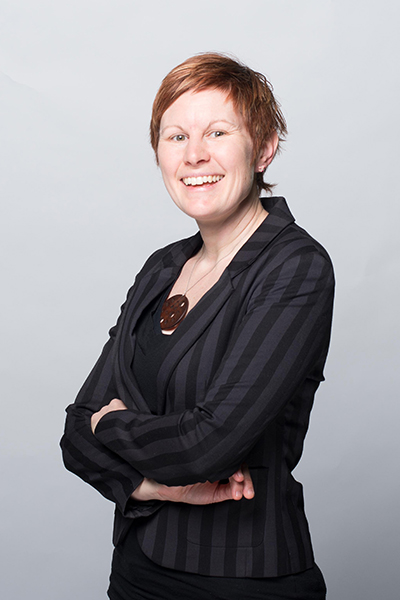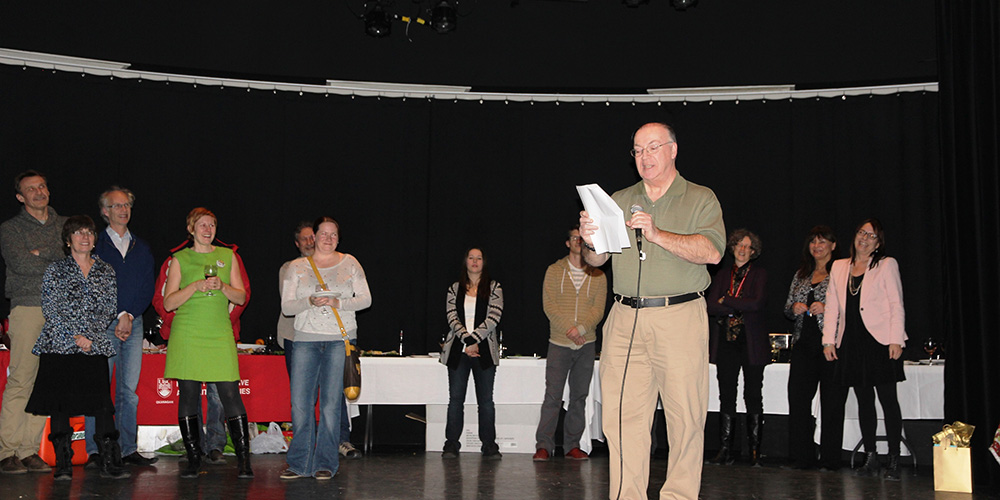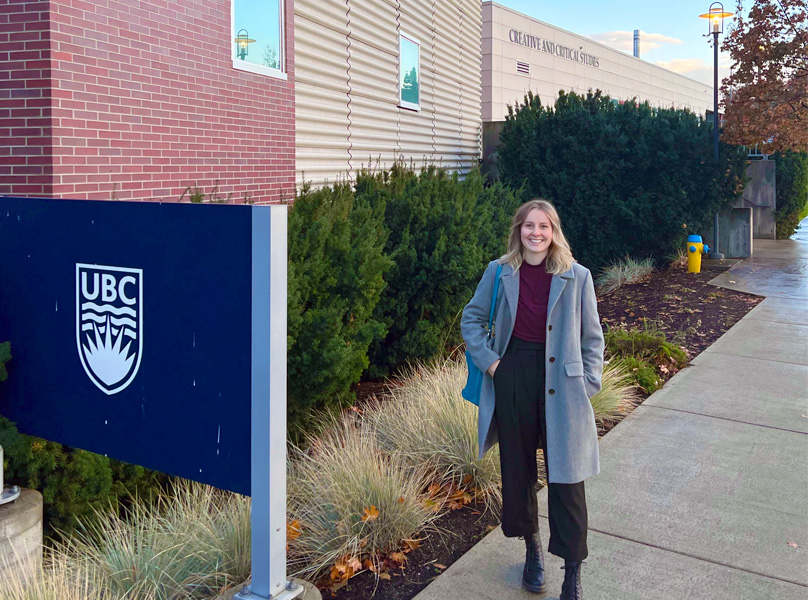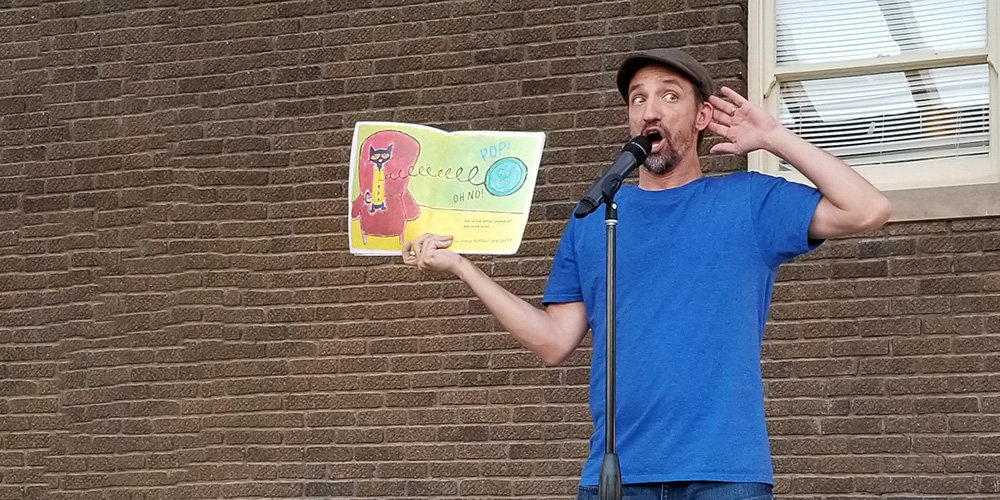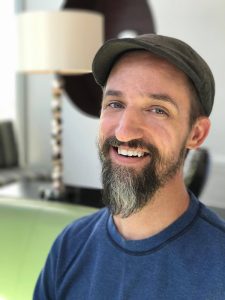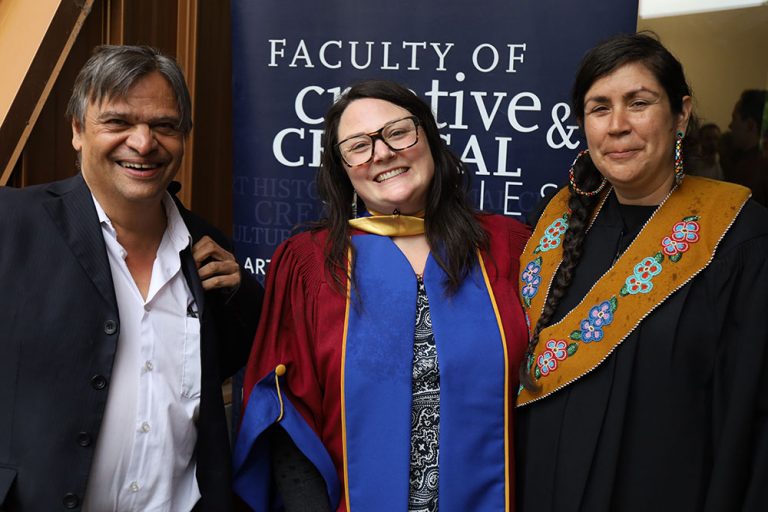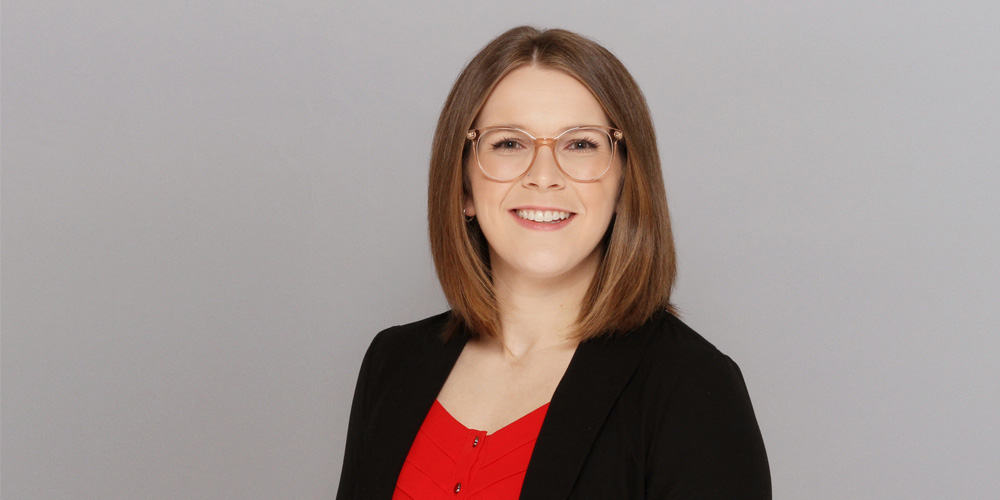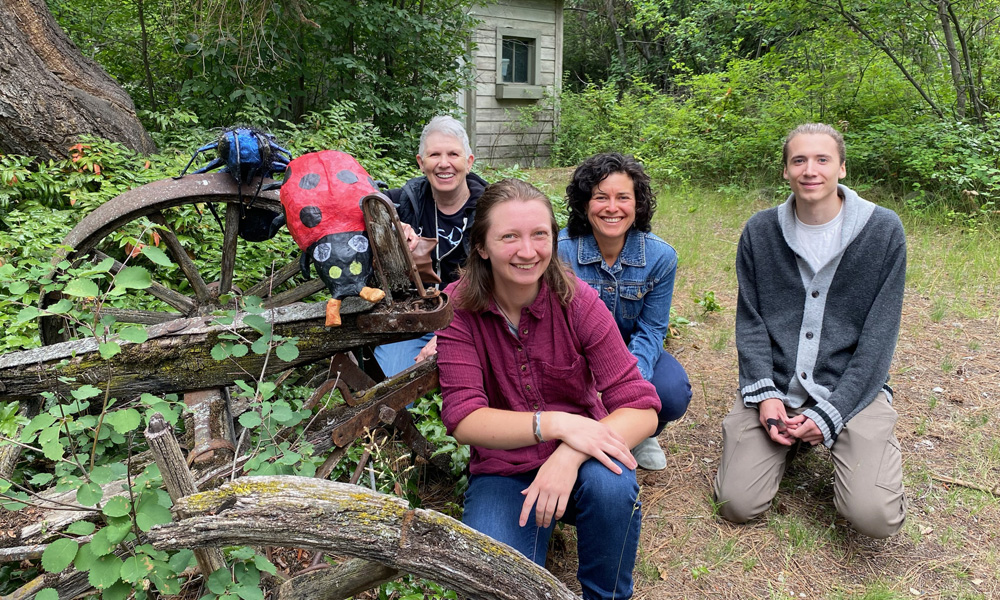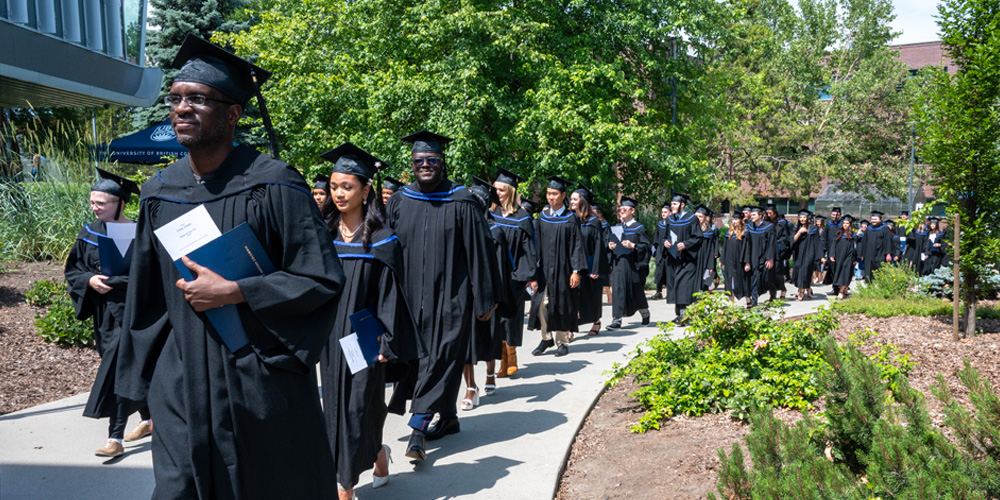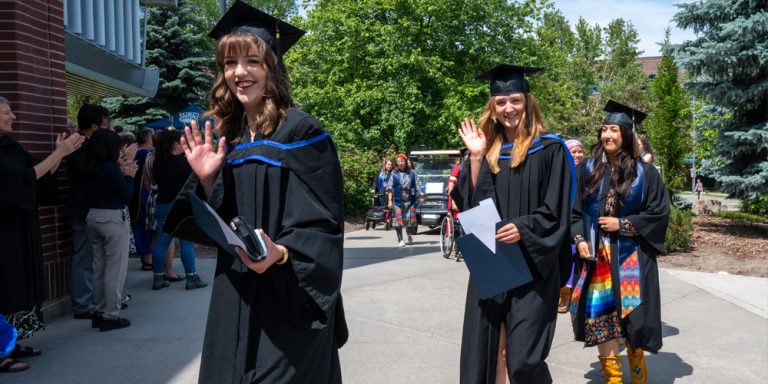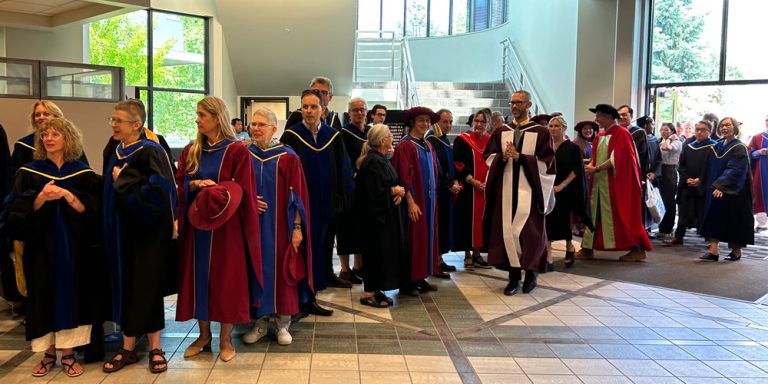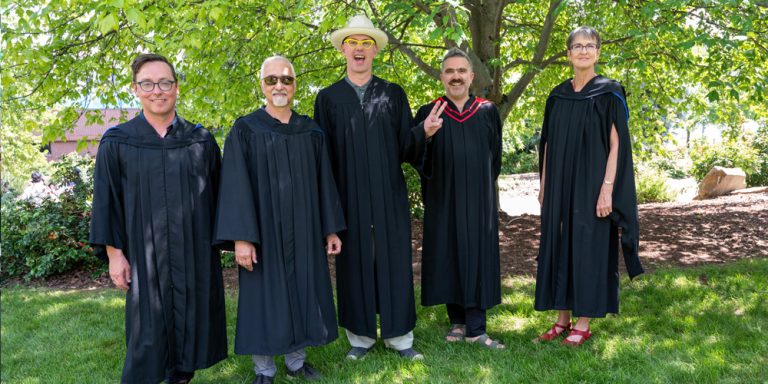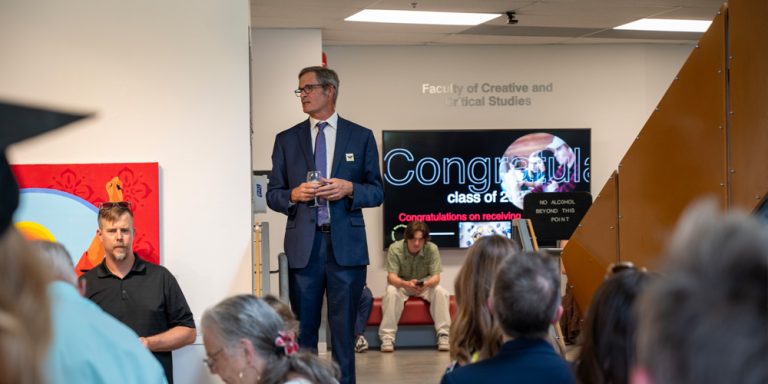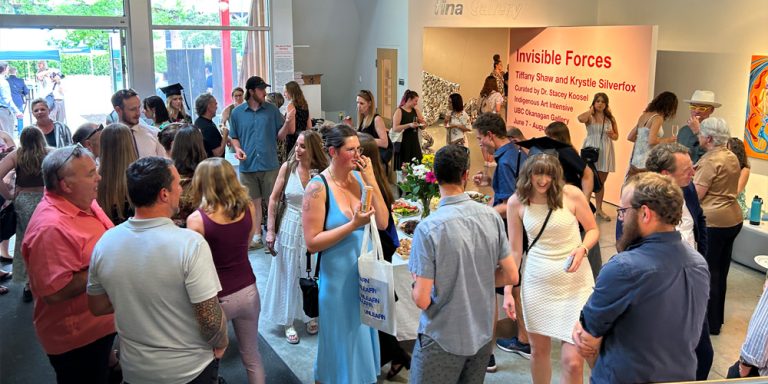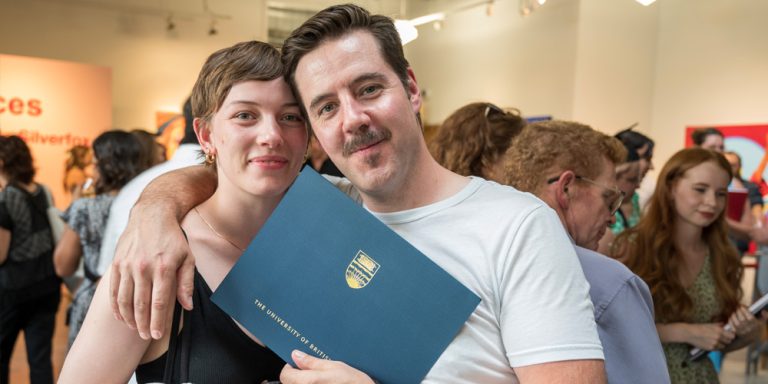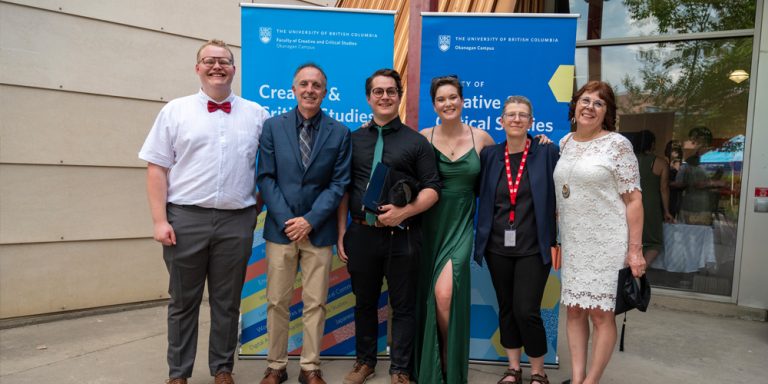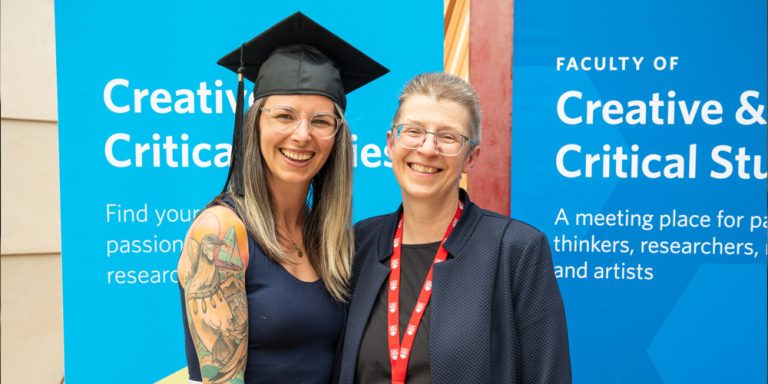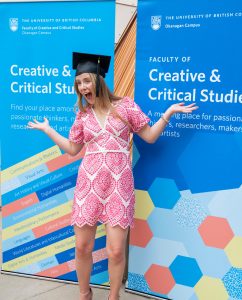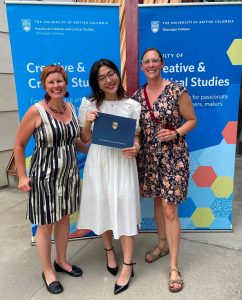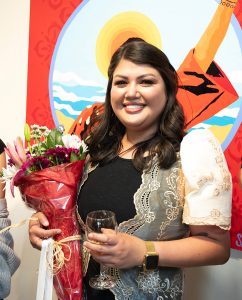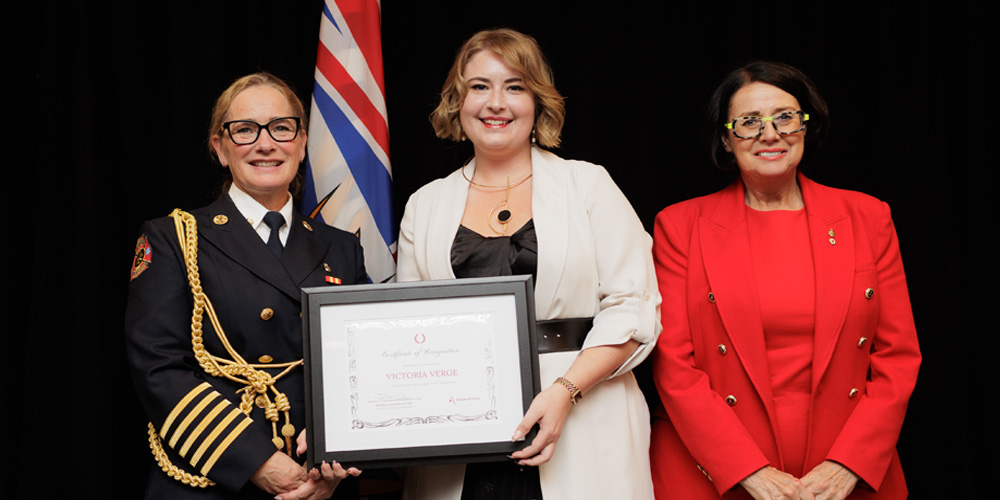
Victoria Verge (centre) with Karen Fry, Fire Chief of Vancouver Fire Rescue Services (left) and Lieutenant Governor of BC, Janet Austin (right), who presented the awards on behalf of the Audain Foundation
Victoria Verge, a second year Masters of Fine Arts student, was awarded the Audain Foundation Travel Award in the fall of 2023. The Audain Foundation supports the visual arts in British Columbia, offering awards to arts organizations, galleries and to individual artists.
Verge’s art practice is centred around the emotional impact of relocation on military dependents.
“As someone who has moved frequently throughout my childhood due to my father’s military service, I am intimately familiar with the feelings of displacement and longing for stability that can arise from such experiences, she explains.
With this funding, Verge travelled to Southern Ontario to explore military housing by taking source images of the houses, meeting with current military families, and sourcing housing blueprints and historical documentation from the archives at the Canadian Forces Housing Agency. The findings will be used to inform the creation of her thesis project.
During her trip, she worked to gather insights into the emotional experiences of military dependants and their relationship with housing and community in this often-transient lifestyle.
“I plan to use the research I gathered during my trip to fuel my current research-creation project which is the development of a series of mixed-media kinetic sculptures that will be scaled-down replicas of military housing units that will perpetually collapse and rebuild themselves in unison.”
Verge will offer a public talk on March 5 about this project and her findings, giving her the opportunity to share her research and artistic practice with the academic and artistic community, inviting them to connect with their own experiences of displacement, longing, and the search for stability and belonging.
“Overall, I hope to contribute to a deeper understanding of the experiences of military families through work that will be both engaging and emotionally resonant,” says Verge.
The Audain Foundation Travel Award was established in 2019 for BFA or MFA students at five major institutions in the province, University of British Columbia Okanagan, University of British Columbia Vancouver, Emily Carr University or Art and Design, Simon Fraser University, and the University of Victoria.
The award is for $7500 to one student per university to allow them to travel to destinations of their choice to view artworks and projects that will foster their practice and research.
Public Talk
Date:: Tuesday March 5, 2024
Time: 2:30 pm
Where: CCS 123 (Creative and Critical Studies building, UBC Okanagan)
